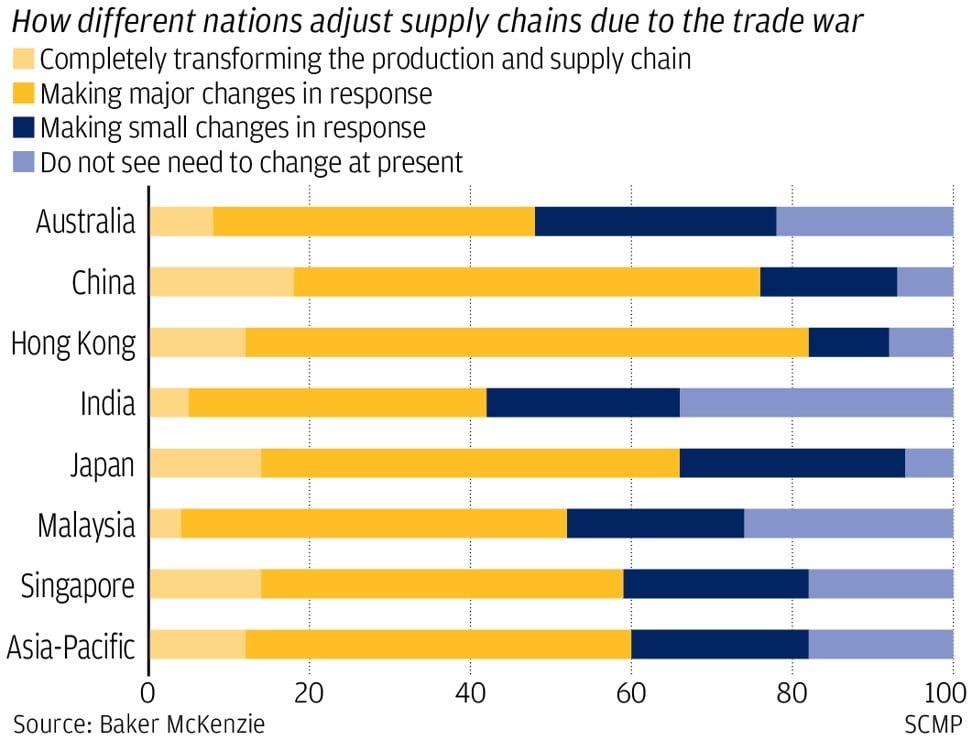
What makes China’s latest wave of foreign capital withdrawal different? It’s structural
- Trade war, rising costs and economic reforms deemed too little, too late are behind China’s latest foreign capital flights
- What is different this time is that the withdrawals are part of a migration of the industrial chain out of China
With the outbreak of the trade war with the United States and the imposing of US tariffs, China’s foreign trade and investment environment is facing great changes. Some foreign investors have chosen to withdraw to avoid tariffs and evade sanctions.
In China, the number of enterprises with foreign investment and the overall scale of foreign capital have yet to decrease significantly.
The scale of foreign investment in high-end manufacturing is shrinking fast, according to our analysis, and there is almost no new investment in some Shanghai industrial parks.
China has huge consumption potential, and could very well become a strategic market. For foreign investors, China is very appealing.
And China is working to become even more appealing, having opened up more of its economy to foreign investment over the last two years.
With the added strain of US tariffs, many foreign enterprises in China find that their products are not longer competitive.

For now, the total amount of foreign capital attracted by China has not decreased, but the deterioration of the trade and investment environment has given rise to a structural withdrawal of foreign capital, and the consequent migration of the industrial chain also brings about a significant impact.
The opening up and prospective prosperity of China's market cannot be achieved without the participation of foreign capital.
The capital, technology, markets, management and brands brought in by foreign investors have boosted China's economy and should continue to play a part in its future.
Chen Gong founded Anbound, an independent think tank headquartered in Beijing, in 1993, and is its chief researcher. Yu Zhongxin has a PhD from the School of Economics, Renmin University of China, and is a researcher at Anbound


